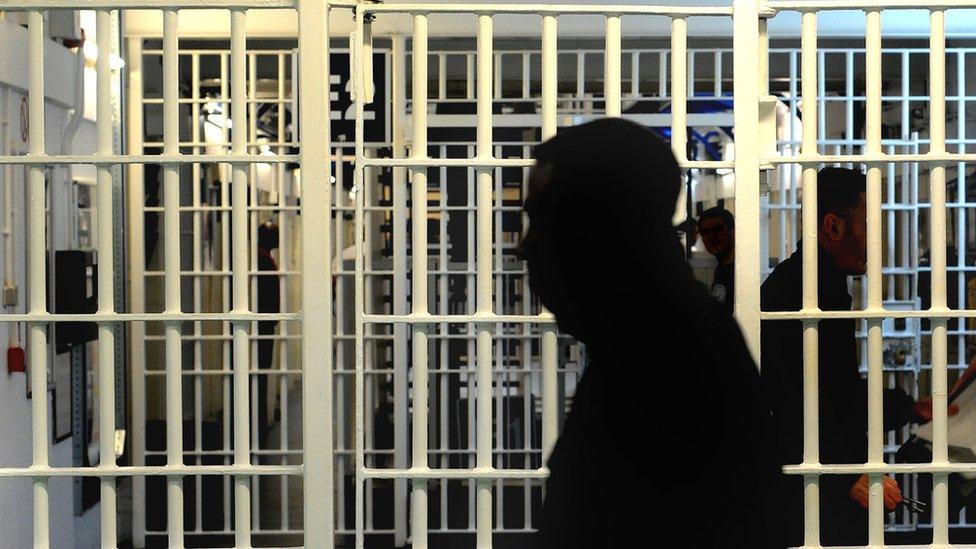Prison staff shortages leave jails facing 'bloodbaths' - union
- Published
- comments
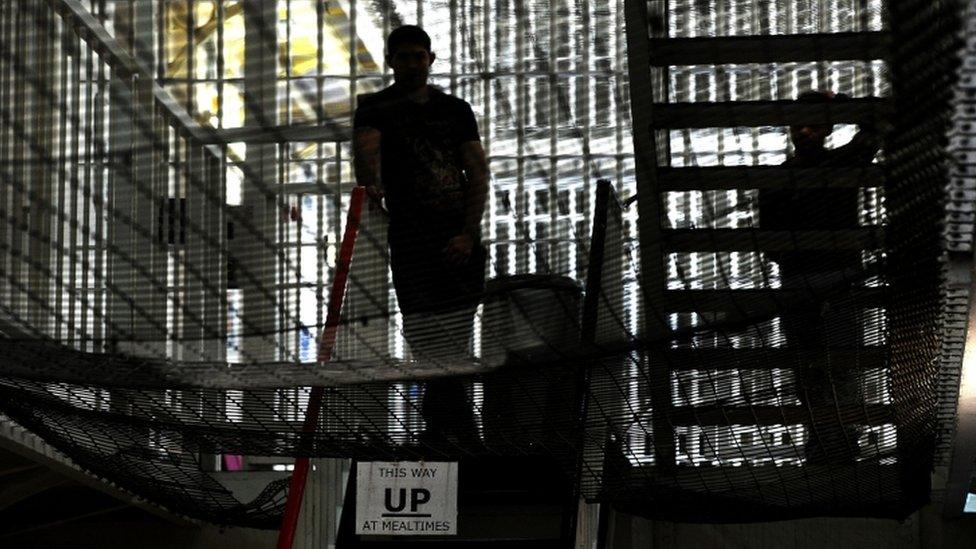
A shortage of prison officers has left jails in England and Wales facing "bloodbaths", a union has warned.
Steve Gillan, of the Prison Officers Association, said proper staff levels were needed if officers - not inmates - were to be in charge of jails.
Earlier, he held talks with Justice Secretary Liz Truss over the rise in violence and suicides in prisons.
Ms Truss is set to unveil what she is calling the biggest overhaul of prisons in a generation on Thursday.
Mr Gillan said he wanted her reform plans to include prisoner searches as well as greater investment, saying £900m had been taken out of the service since 2010.
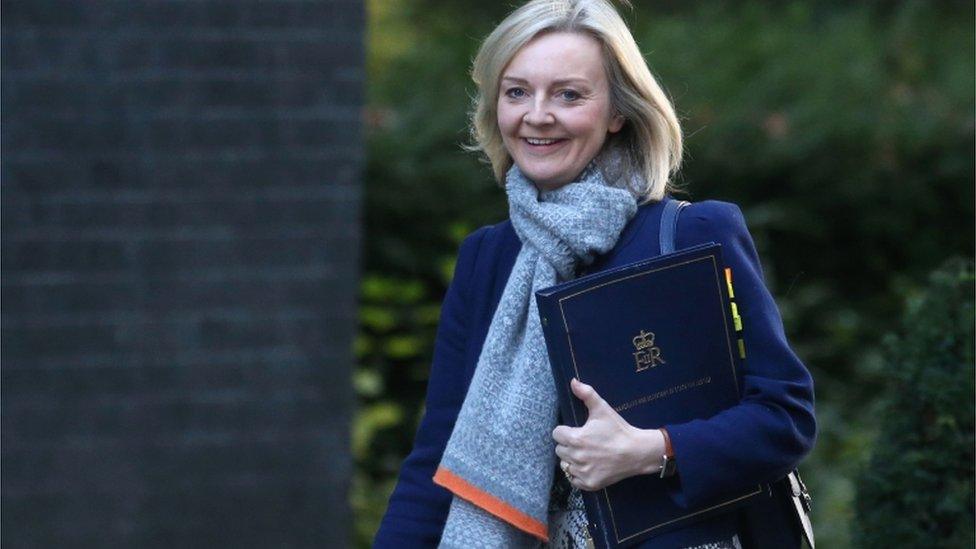
The justice secretary is due to outline her plans for prison reform on Thursday
"We are not accepting any crumbs from the table," he said.
He added that Ms Truss appeared to accept the prison service was in crisis, underfunded and short-staffed, and warned the POA and government would be "on a collision course" if these problems were not addressed.
"The last thing that we want to see is more carnage and bloodbaths, and a prison officer loses his life," he said, after the meeting.
Are prisons becoming more dangerous places?
Earlier on Wednesday, the POA, which is banned from taking industrial action, had been set to take part in an unofficial walkout.
The union has set a deadline of 11 November for government to take action over prison violence, otherwise it is threatening to resume its plan of public meetings and taking control of prisons from managers.
Latest figures show a new high of 65 assaults in jails every day.
In the year to June, assaults on staff jumped by 43% to 5,954, with 697 of these recorded as serious.

Analysis
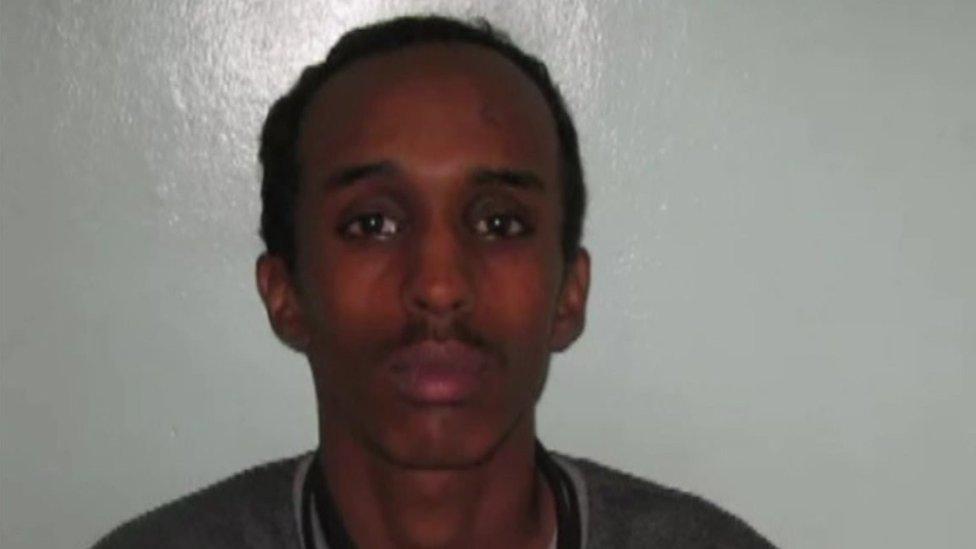
Jamal Mahmoud was stabbed in Pentonville in October
By Danny Shaw, BBC home affairs correspondent
For months there has been huge concern about conditions in prisons, escalating levels of violence, self-harm and suicide.
The fatal stabbing of a prisoner at Pentonville Prison, north London, propelled the issue into the headlines.
Prison officers are concerned they cannot safely operate in jails with the current levels of staff.
The POA wanted to hold a series of union meetings outside prison gates - visible to the public and the media - before imposing their own working practices, including letting inmates out of their cells only in small numbers.
That would be a highly-restricted kind of regime.
The government agreed, as part of a deal for that action to be suspended, to hold urgent talks.
On Thursday, when Ms Truss is due to announce prison reforms, she is likely to continue steps taken by former Justice Secretary Michael Gove - giving governors more control and changing the way education is provided in prison.
But she also has to say something about recruitment and retention of prison officers. She has already announced 400 extra staff, but the problem is in some areas it doesn't pay to be a prison officer.
That's something the government's got to seriously look at, whether it involves extra pay incentives early on in someone's career or quicker pay progression.

One prisoner at London's Pentonville Prison told the BBC, via a note, how he had witnessed the "gory" killing of 21-year-old Jamal Mahmoud last month.
Since the incident, he said, prisoners had been "on lockdown".
"What really worries me is the availability of weapons and the frequency and severity of the violence I have witnessed here," he said.
He described how razors melted into toothbrushes were fashioned into weapons and flex and plugs from in-cell kettles were used as a "garrotte" or "flailing" weapons.
He also said knives were flown into Pentonville by drones.
Meanwhile, a former offender told BBC's World at One about stabbings, assaults and gang violence happening almost daily at his prison.
Lord Ramsbotham, former chief inspector of prisons and prison reform campaigner, said the problems were "not surprising" after the government had cut staff by a third.
The fact that both officers and governors were calling for urgent action should be taken "very seriously" by the government, he told BBC's Victoria Derbyshire programme.
"The basis of all prisons is the relationship between staff and prisoners. Unless things are right for staff, nothing will be right for prisoners," he said.
He called on the government to make people publicly responsible and accountable for prisons, as they were for business, schools and hospitals; to address overcrowding; and to make sure governors led their staff.
- Published20 October 2016
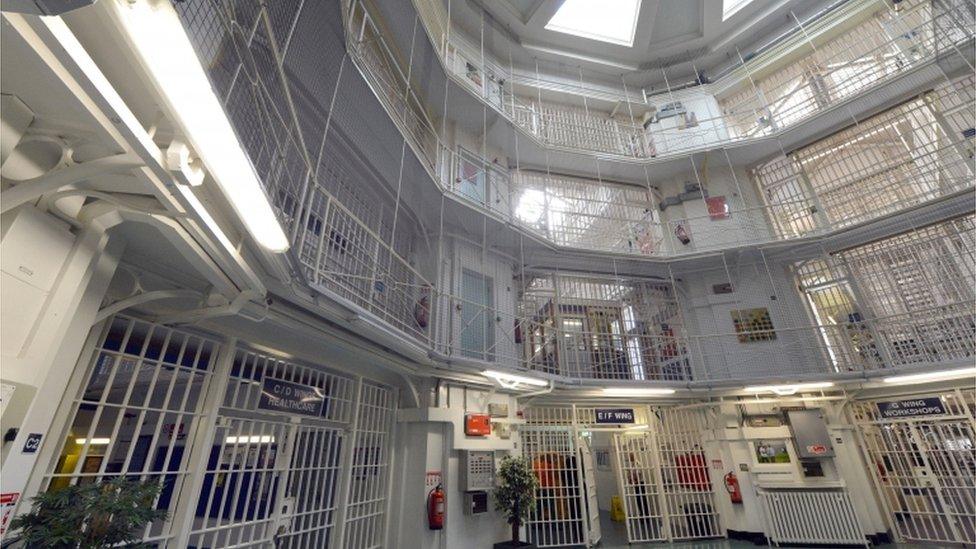
- Published20 October 2016
- Published19 October 2016
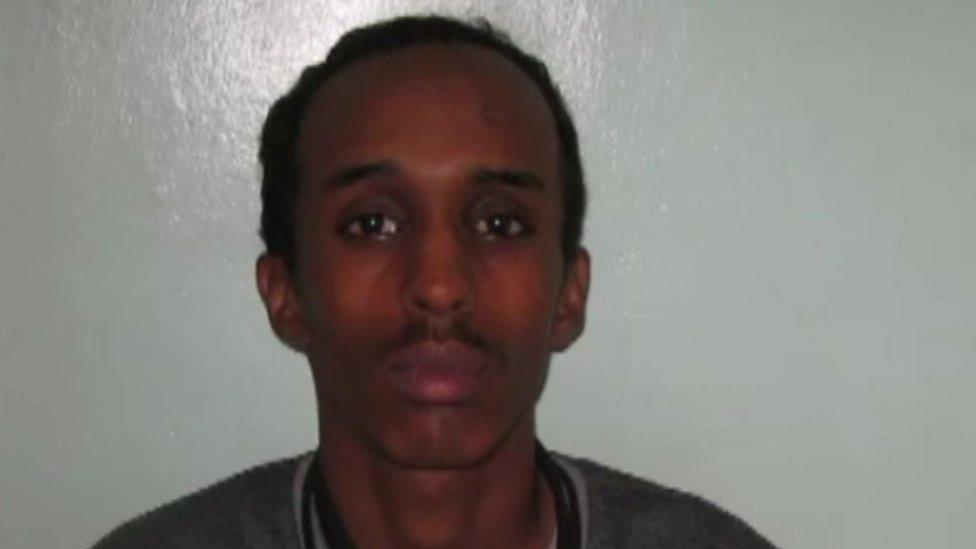
- Published7 November 2016
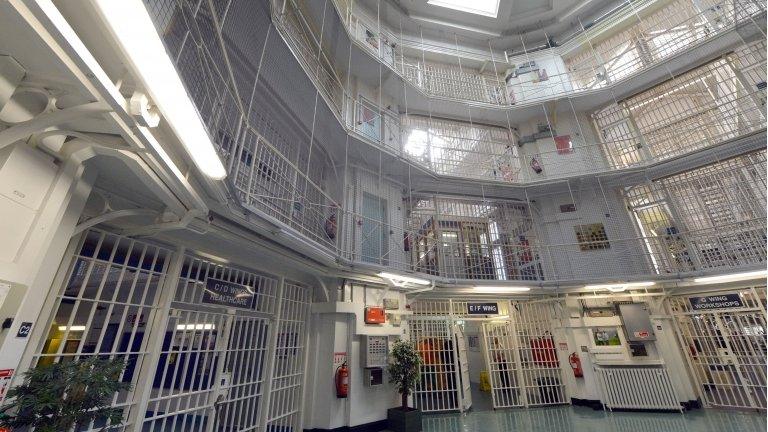
- Published19 July 2016
